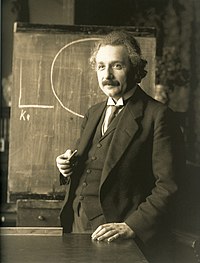
Photo from wikipedia
This article presents a critical reading of Albert O. Hirschman’s typology of exit, voice and loyalty as a heuristic for understanding the changing meanings of exile in the 20th and… Click to show full abstract
This article presents a critical reading of Albert O. Hirschman’s typology of exit, voice and loyalty as a heuristic for understanding the changing meanings of exile in the 20th and early 21st centuries. It is argued that Hirschman’s experiences as well as the theory he distilled from them are highly relevant for researchers of forced migration and exile. After first defending the usefulness of Hirschman’s analytical framework for exile and diaspora studies, the article then highlights the need to revise and complicate his approach. Hirschman could not foresee the emerging global possibilities of cultivating ‘the art of voice’, new forms of internal and self-exile as a result of post-fascist versions of authoritarianism, and the growing difficulties faced by refugees including, refugee scholars and writers, to exit their countries and find a safe haven somewhere else. The gaps in Hirschman’s theory are addressed by drawing on insights from the writings of Judith Shklar.
Journal Title: Thesis Eleven
Year Published: 2019
Link to full text (if available)
Share on Social Media: Sign Up to like & get
recommendations!